RHI Inquiry: Minutes not taken to frustrate FOIs
- Published
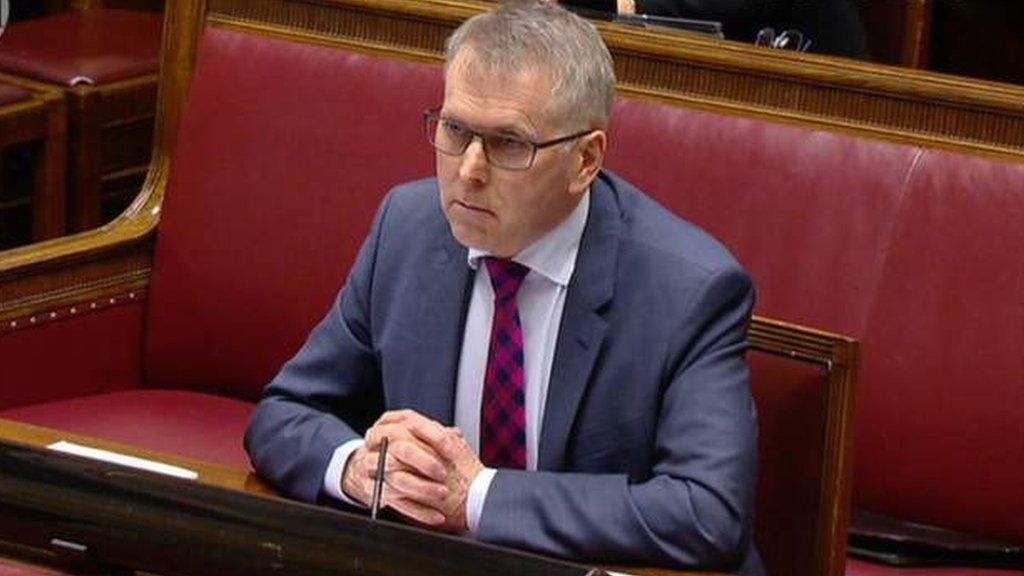
David Sterling said he only got involved in the day-to-day running of projects if three potential trigger points were reached
The head of Northern Ireland's civil service has admitted meetings were not minuted in order to frustrate Freedom of Information requests.
David Sterling was giving evidence to an inquiry into a botched green energy scheme on Tuesday.
In 2009 he was permanent secretary of the Department of Enterprise Trade and Investment, which implemented the renewable Heat Incentive.
It offered financial incentives if firms switched to renewables.
But critical flaws meant its claimants could earn substantial returns, far greater than intended.
The issue of minutes was raised in respect to a meeting between senior Department of Enterprise, Trade and Investment official Fiona Hepper and then-minister Arlene Foster, about whether to proceed with RHI in the absence of cost controls introduced in Great Britain.
Ms Hepper has told the inquiry she clearly flagged a warning from Ofgem about the risk of going ahead and introducing the controls later.
Mrs Foster has said she has "no recollection" of the conversation.
'Sensitive to criticism'
Mr Sterling said the practice of taking minutes had "lapsed" after devolution when engagement between civil servants and local ministers became much more regular.
But he said it was also an attempt to frustrate Freedom of Information requests.
Mr Sterling said ministers liked to have a "safe space where they could think the unthinkable and not necessarily have it all recorded".
He said the DUP and Sinn Féin were sensitive to criticism and in that context, senior civil servants had "got into the habit" of not recording all meetings.
He said this was done on the basis that it was sometimes "safer" not to have a record which might be released under Freedom of Information.
But he agreed with the inquiry panel that when it came to ministerial decisions on matters of public money it should be recorded.
'Limited involvement'
Mr Sterling also said he only got involved in projects day-to-day if three potential trigger points were reached.
These included a request from staff or his minister to take a closer interest, or if he considered it necessary himself.
He said none of those triggers had been reached in respect of the RHI scheme.
Inquiry counsel David Scoffield QC said the public might be surprised to learn that a complex scheme that involved a large amount of public money was one in which the permanent secretary of the department seemed to have had "limited involvement" and this was not considered unusual.
Mr Sterling said he could understand why the public or commentators "might think it strange".
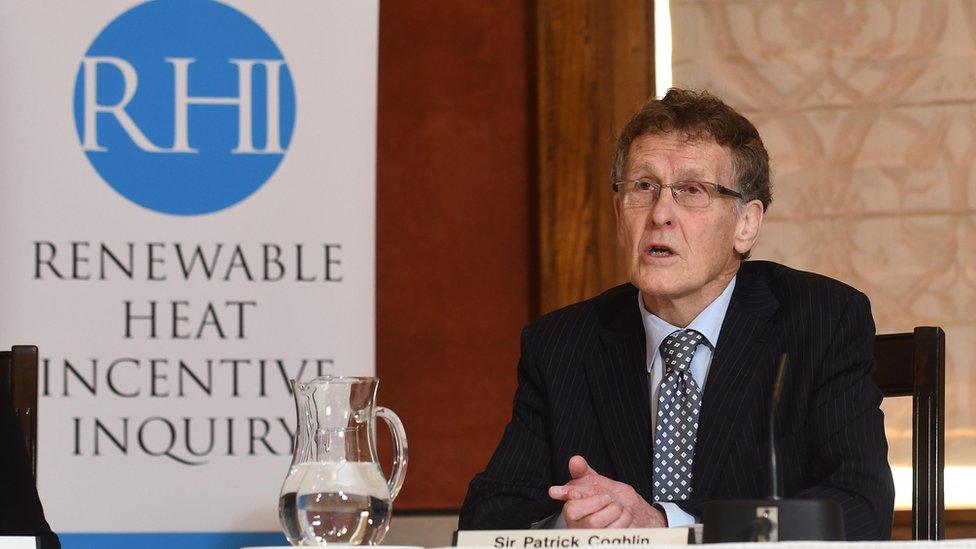
The inquiry is being chaired by Sir Patrick Coghlin
But he said his role was to provide a robust system of internal control to ensure schemes were delivered properly.
However inquiry chair Sir Patrick Coghlin said the renewable heat scheme was one of the first of its kind in the world.
He said it was "novel and unpredictable" and funded in a "highly unusual way" and yet Mr Sterling had not considered that it merited his personal attention.
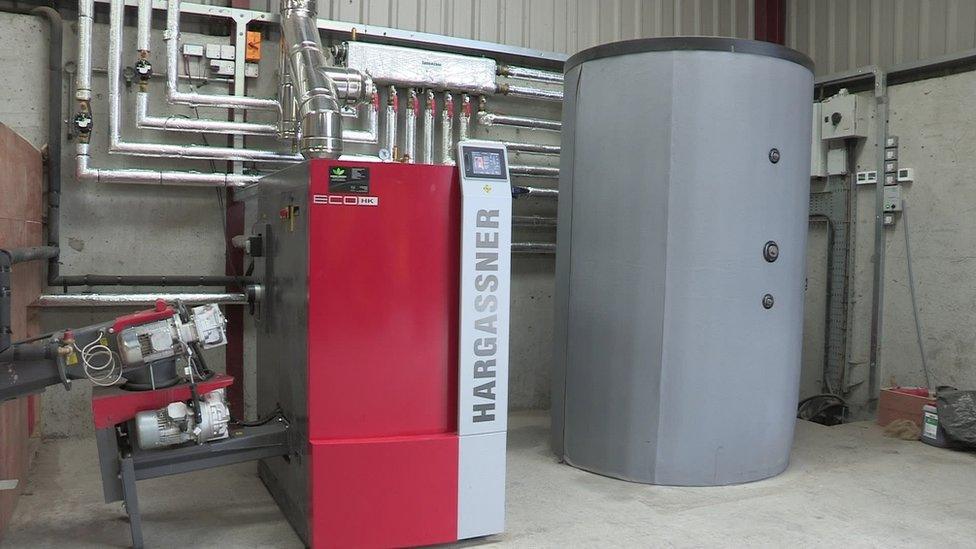
Overly-generous subsidies meant the costs of the scheme spiralled out of control
Sir Patrick asked how many projects in his department would have had all the qualities of the RHI scheme.
Mr Sterling said he could not think of any "off the top of my head" and now accepted that he perhaps should have been "more inquisitive" about the scheme.
The inquiry, which is taking place at Stormont, was set up to investigate the circumstances surrounding the energy initiative, after its costs spiralled.
'Slow uptake'
The RHI scheme offered to subsidise the cost of claimants' fuel - mostly wood pellets - for running new renewable heating systems.
But the fuel actually cost far less than the subsidy they were receiving, effectively meaning that users could earn more money by burning more fuel.
The most recent estimate put the projected overspend at £700m over 20 years if measures to control the cost are not implemented.
The scandal generated significant public concern and the fallout led to a major political crisis in Northern Ireland that exists to this day.
Mr Sterling said he "took comfort" from a range of things at the inception of the scheme.

The RHI scheme subsidised the cost of fuel to encourage the use of renewable heating systems
These included the professionalism of his staff; the use of internationally respected consultants and the contracting of Ofgem to run RHI as was happening in Britain.
After the scheme was up and running, he would not have heard very much about it, he said.
In the early years he was conscious that uptake was slow and officials were surrendering money to the Treasury.
Had a planned review of the scheme in 2014 taken place, it would have prevented the huge projected overspend, Mr Sterling said in his statement.
He did not remember anything "which would have alerted me to the fact that the planned review had not been conducted and the consequent impact which would result", he added.
But he said with the benefit of hindsight it was "hard not to conclude that if an effective review had been concluded... it would have been possible to avoid the spike that occurred in October/November 2015 and the consequent cost escalation which ensued".
- Published8 February 2018

- Published7 December 2017
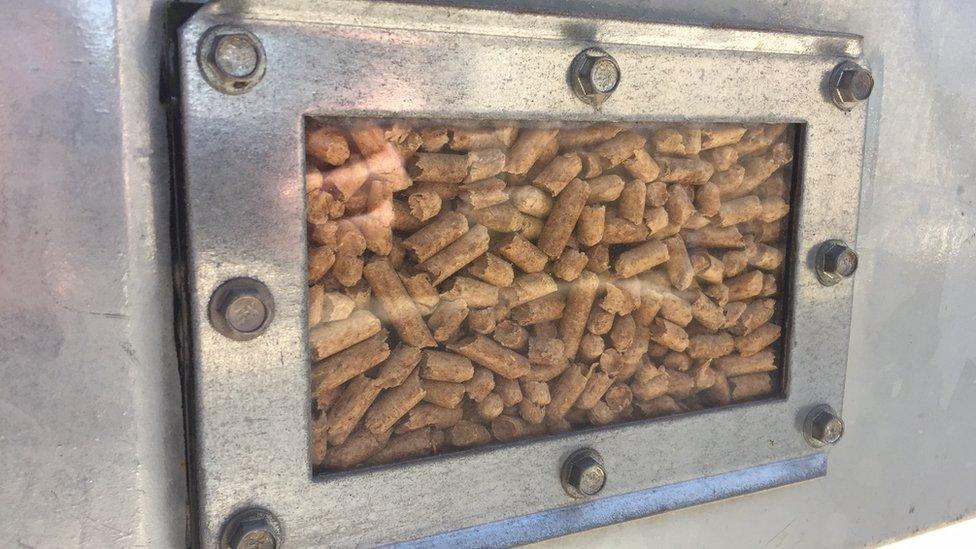
- Published30 January 2018
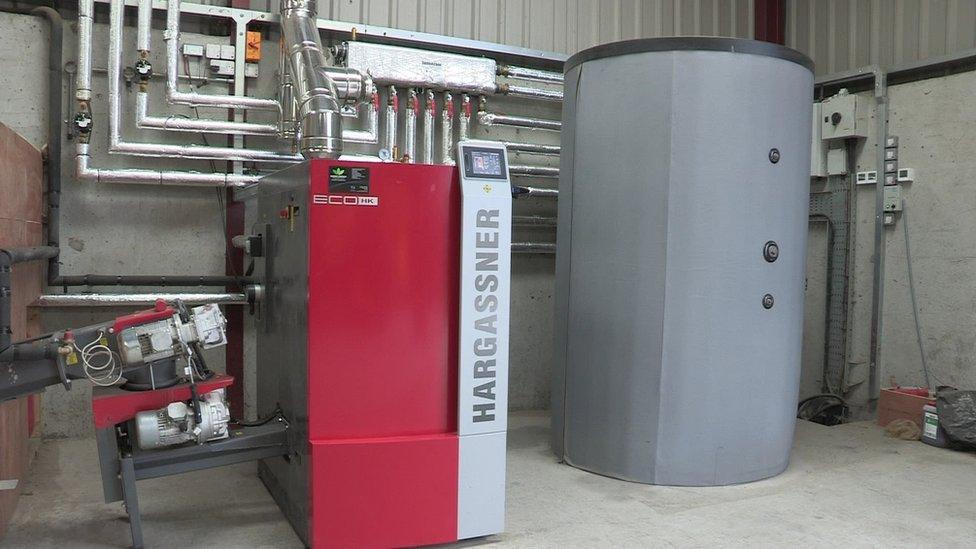
- Published17 January 2017
